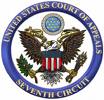Legal Legitimization: Recent Court Cases and the LGBTQ Reality
Lately, courts all across the country have been standing up to religious (or sometimes what’s called “moral”) bias against the LGBTQ community. In one way, it is not surprising that there have been so many recent cases, because such bias is a pervasive part of the legal reality members of LGBTQ community face on an everyday basis. Nonetheless, theses sorts of court decisions seem to be, at this particular moment in time, flying out the doors of courthouses all over the country. I’ll take a moment to hit some of the high points before getting down to the real question: does it even matter?
In March of this year, a federal judge held that a lesbian teen’s First Amendment rights had been violated when the Itawamba County School District refused to allow her to bring a female date to the prom. The district had banned same-sex couples at the prom in the past, but Constance McMillen implored them to make an exception. The district refused, and McMillen, represented by the ACLU, sued them on First Amendment grounds. The federal judge agreed that her rights had been violated but refused to grant her request that the school still sponsor a prom to which she could bring a female date.
In another federal case, in July, the United States District Court for the District of Columbia ruled that Section 3 of the Defense of Marriage Act (DOMA) was unconstitutional. Section 3 reads as follows:


